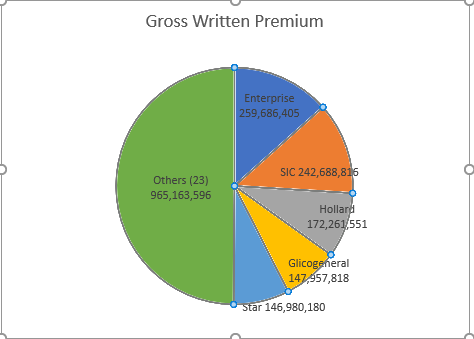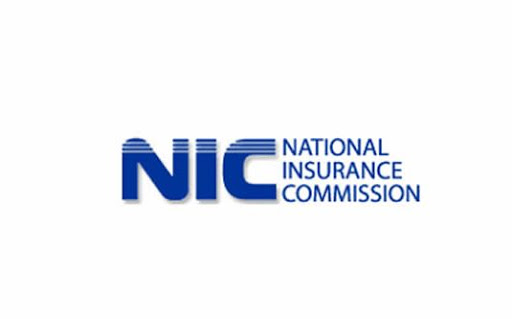The Insurance Act, 2006, Act 724 section 80 and 81 mandates insurance companies to prepare and lodge their accounts and financial statement with the National Insurance Commission (NIC) every quarter and every financial year.
The risk absorption role of insurers promotes financial stability in the financial markets and provides a sense of peace to economic entities.

The insurance companies’ ability to cover risk in the economy hinges on their capacity to create profit or value for their shareholders.
A well developed and evolved insurance industry is a boon for economic development as it provides long-term funds for development.
Financial performance is a measure of an organization’s earnings, profits, appreciations in value as evidenced by the rise in the entity’s share price.
In insurance, performance is normally expressed in net premiums earned, profitability from underwriting activities, annual turnover, returns on investment and return on equity.
The demand for non-life insurance products often increases when an economy is performing well.
Motor insurance is one of the main non-life insurance categories in the insurance class of business that drives the overall trends observed in the sector.
Despite the impact of Covid-19 and series of directives and reforms introduced by the regulator, the general insurance industry continued to be robust.
Following the same structure as past editions, this article looks into some key aspects of the health and performance of the general insurance industry among twenty (28) insurers, excluding Heritage Insurance Company Limited.
The underwriting performance of the non-life insurance business depends on the evolution of gross written premiums, claims payments, investment and market share.
This article specifically highlights the top five insurers who have more than 50% of the market.

Gross Premium
Amid the impact of Covid-19, the total gross premium generated increased from GH¢1,558,891,883 in 2019 to GH¢1,934,738,366 in 2020.
For the second time, Enterprise insurance has overtaken SIC insurance in gross written premium.
The insurer increased its gross premium from GH¢207,058,830 in 2019 to Gh¢259,686,405 in 2020. The gross written premium for SIC insurance also increased from GH¢211,514,138 in 2019 to GH¢242,688,816 in 2020.
In 2019, Hollard insurance moved from sixth to the forth position with a gross written premium of GH¢123,559,788.
In 2020, Hollard insurance is occupying the third position with gross written premium of GH¢172,261,551.
The gross written premium for Glicogeneral insurance increased from GH¢113,805,282 in 2019 to GH¢147,957,818 in 2020.
Star Assurance increased its gross written premium from GH¢121,652,887 in 2019 to Gh¢146,980,180 in 2020.
The remaining 23 general insurance companies generated a total gross premium of Gh¢965,163,596.
Claims Expense
The most sensitive area in insurance where the public has bad perception about the industry is claims.
Claims payments increase when faced with major natural catastrophes.
Even though motor insurance is the main class of business that drives the overall underwriting performance of the non-life sector, it is also the class of business that undermines the underwriting profits of insurers.
The Covid-19 safety protocols imposed a lot of restrictions on drivers and passengers. Nevertheless, the rate of motor accidents continues to rise, thereby increasing claims expense of insurers in 2020.

The total claim amount paid by all the insurers increased from GH¢330,435,789 in 2019 to GH¢415,482,274 in 2020.
For the past decade, Enterprise insurance had been paying claims more than any other insurer in Ghana.
The claims expense for the insurer increased from GH¢62,278,045 in 2019 to GH¢68,635,218 in 2020.
This was followed by RegencyNem insurance (GH¢46,982,235). The gross written premium of the insurer is GH¢40,041,715.
That indicates the insurer had significant underwriting losses. Star Assurance spent GH¢40,374,418 on claims expenses. SIC insurance spent GH¢36,079,891 whiles Vanguard Assurance made claims payment of GH¢33,220,300.
The remaining 23 general insurers spent GH¢190,190,212. Multi Insurance has the least amount of claims payment of Gh¢111,913.
Market Share
Five general insurers occupied 50.12% of the total market share. In 2018, Enterprise Insurance took over the market for the first with 14% market share. Before then, SIC insurance was always dominating the market.
In 2019, SIC insurance regain its market leadership with a market share of 13.5% whiles Enterprise insurance had 13.3%.
In 2020, Enterprise insurance has become the market leader for the second time with a market share of 13.42%, whiles SIC insurance occupies the second position with a market share of 12.5%.
After the acquisition of Metropolitan insurance, Hollard insurance has become a force to reckon with in the general insurance industry in Ghana.
The insurer was occupying the sixth position with a market of 7% in 2018. In 2019, they moved from sixth to forth position with a market share of 7.9%. In 2020, the insurer is now occupying the third position with a market share of 8.9%.
Glicogeneral insurance occupying the forth position also increased its market share from 7.3% in 2019 to 7.65% in 2020.
The fifth position is occupied by Star Assurance. Star Assurance is gradually losing its market share to its competitors. In 2018, the insurer had a market share of 9%.
It was then reduced to 7.8% in 2019. With 2020 data, the market share for Star Assurance has reduced again to 7.6%.
Twenty-three (23) insurers share the remaining 49.88% of the market share. Vanguard Assurance used to be part of the top five insurers in the industry. The insurer now occupies sixth position with a market share of 7.17%.
Investment
Investments are a key component of the insurance business model, in which premiums paid to insurers are invested until liabilities fall due.
The insurance industry is one of the largest institutional investors in Ghana, making it an important provider of the investment needed for economic growth. Since most of their assets back long-term liabilities, insurers tend to invest long-term.
Even though Covid-19 brought some distress and interruptions in the financial markets, growth in the investment portfolio of some insurance companies was significant in 2020.
The total investment portfolio managed by the non-life insurance companies grew from GH¢1,646,694,790 in 2019 to GH¢1,928,059,850.

Out of that figure, Star Assurance investment portfolio grew from GH¢308,128,856 in 2019 to GH¢349,202,960 in 2020.
SIC insurance’s portfolio grew from Gh¢318,527,362 in 2019 to GH¢333,480,802 in 2020. Enterprise insurance’s investment portfolio grew from GH¢150,442,816 in 2019 to GH¢207,006,773 in 2020.
Hollard insurance’s portfolio grew from GH¢86,252,065 in 2019 to GH¢104,873,232 in 2020. In 2019, Ghana Union Assurance investment portfolio was GH¢80,592,456. But in 2020, Vanguard Assurance overtook Ghana Union Assurance.
Vanguard’s investment portfolio increased from GH¢61,135,760 in 2019 to GH¢98,881,133 in 2020. Ghana Union Assurance’s investment portfolio was Gh¢81,390,454 in 2020. The consolidated investment portfolio of the remaining 23 insurers was Gh¢834,614,950.
Conclusion
The assessment of the insurance sector reveals the structure of competition within the insurer’s operating environment and competitive position in the industry amid Covid-19 impact.
This reveals the relationship in gross written premium generation, claim payments, market share and investment portfolios.
The writer works with Activa International Insurance Ghana

Email Address: [email protected]/ [email protected]
Follow me on:
Blog: https://gsinsuranceconsultgh.wordpress.com
GS Insurance Consult on Facebook, Twitter and Instagram
Contact: 0246972495










